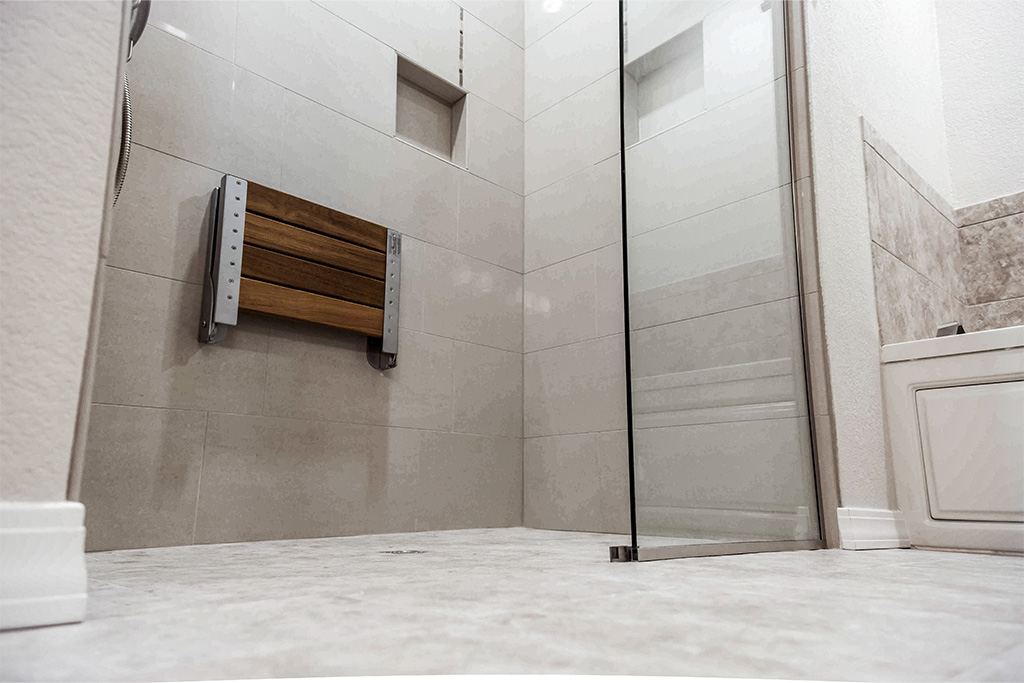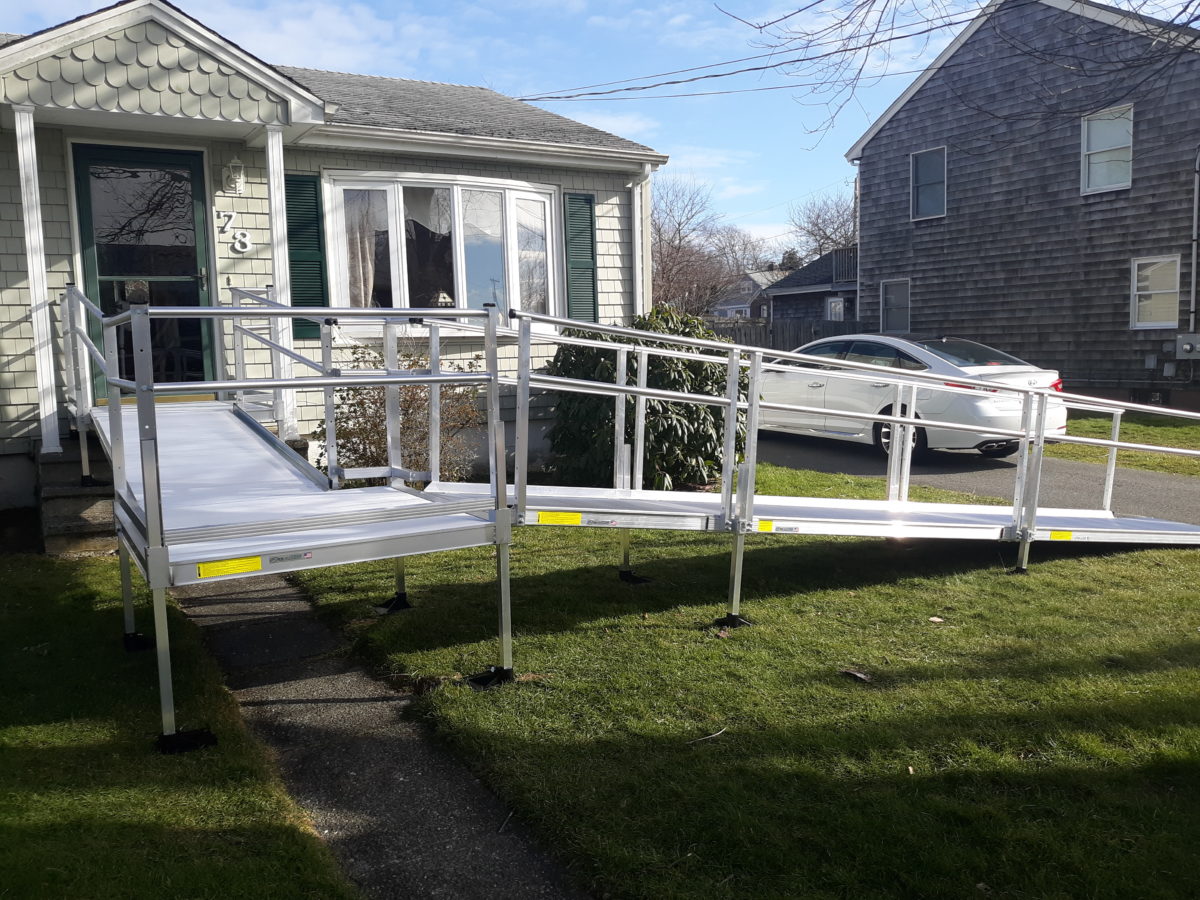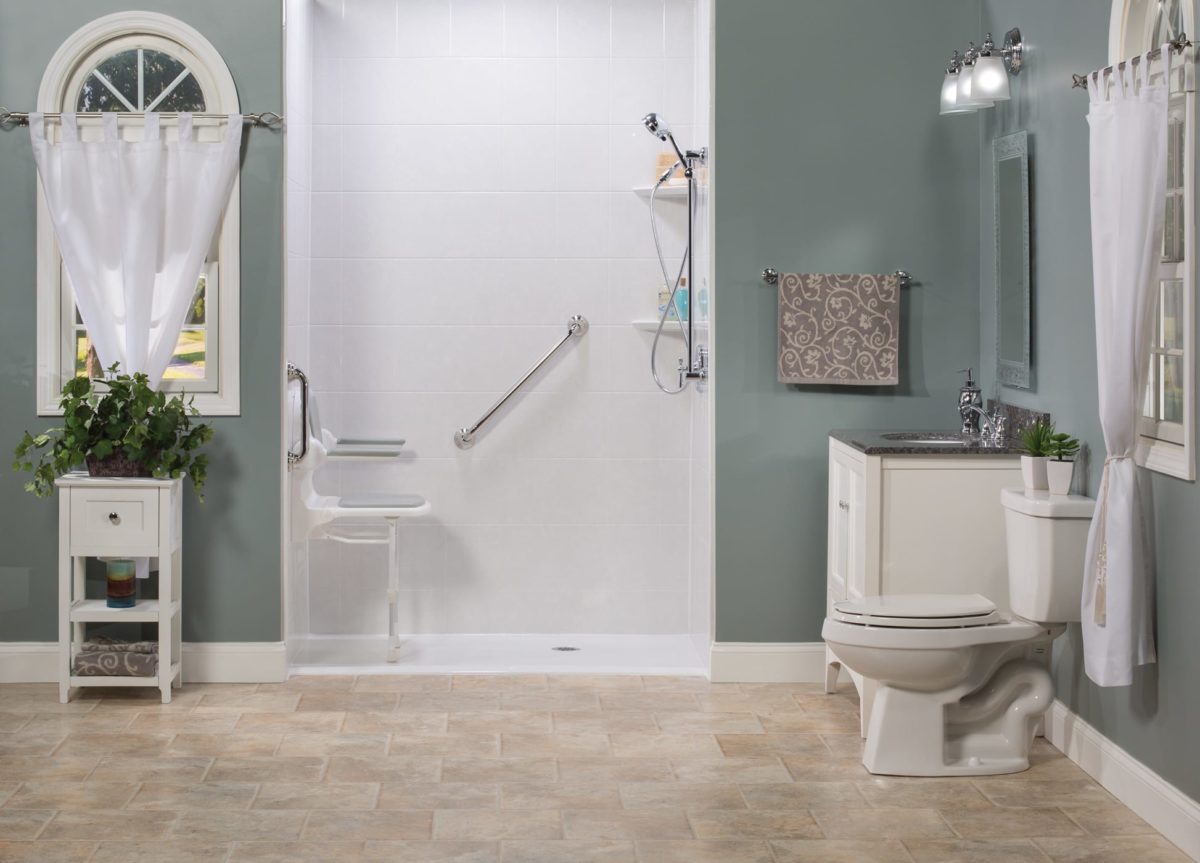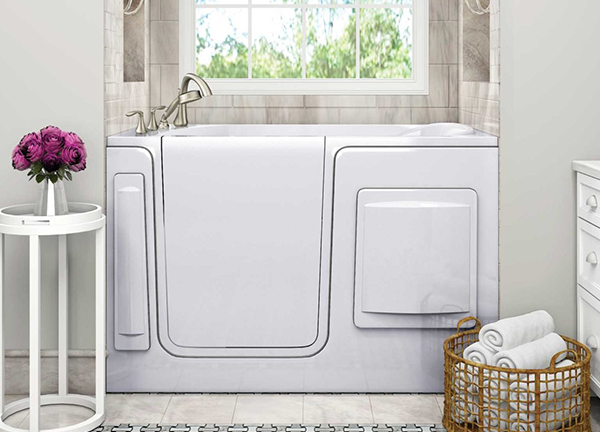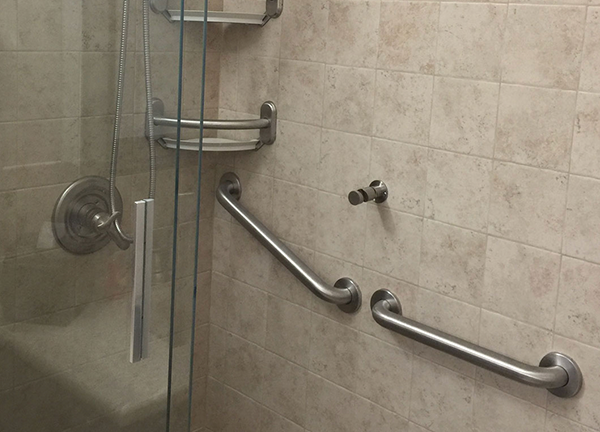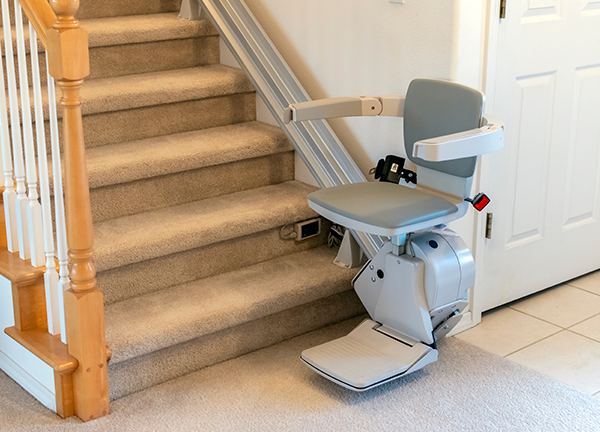For many homeowners with mobility issues, a bathtub can be a daunting obstacle to overcome. That’s where a tub-to-shower conversion can make all the difference. Converting your tub into a shower can provide better accessibility and safety, but it’s important to understand the costs involved before making a decision. We’ve outlined the cost considerations that Rhode Island homeowners with mobility issues need to be aware of when considering a tub-to-shower conversion.
Materials
The first consideration when converting a bathtub to a shower is the cost of materials. Depending on your preferences and the size of your shower, you may need to purchase a shower pan, tiles, shower doors, fixtures, and other accessories. The type of materials you choose can also impact the cost – for example, high-end tiles will be more expensive than basic ceramic tiles or shower surround system. It’s important to factor in the quality and durability of materials when making your selection, as well as any installation costs.
Labor Costs
Next, you’ll need to consider the cost of labor for your tub-to-shower conversion. Depending on the complexity of the job and your specific requirements, hiring a professional contractor may be necessary. The cost of labor will vary depending on factors such as the size of the shower, the materials used, and the location of your home. Make sure to get multiple quotes and compare the costs and quality of work that each contractor can offer.
Permits
Another cost consideration is obtaining the necessary permits for your tub-to-shower conversion. Depending on your local regulations, you may need to obtain a building permit to install your new shower. This can add an extra cost to your project, so it’s important to research the requirements and budget accordingly.
Accessibility
Add-Ons If you or a family member has mobility issues, you may want to consider adding accessibility features to your new shower. This could include things like grab bars, non-slip floors, or a seating area for easier bathing. While these features can improve safety and accessibility, they can also add to the cost of your project. Make sure to weigh the benefits and costs of these add-ons before making a decision.
Maintenance
Finally, it’s important to consider the long-term maintenance costs of your tub-to-shower conversion. While a shower can be easier to maintain than a bathtub, certain materials may require more upkeep over time. For example, natural stone tiles may require sealants to prevent staining and water damage. Make sure to factor in any maintenance costs when choosing your materials and designing your new shower.
Cost Considerations for Tub-to-Shower Conversions
Converting your tub to a shower can provide safer and more accessible bathing for those with mobility issues. However, it’s important to be aware of the cost considerations involved before making a decision. By considering the materials, labor costs, permits, accessibility add-ons, and maintenance costs, you can make an informed decision that meets your budget and meets your safety needs. If you’re considering a tub-to-shower conversion in Rhode Island, be sure to reach out to Home Mobility Pros to discuss your options and get an accurate cost estimate.

